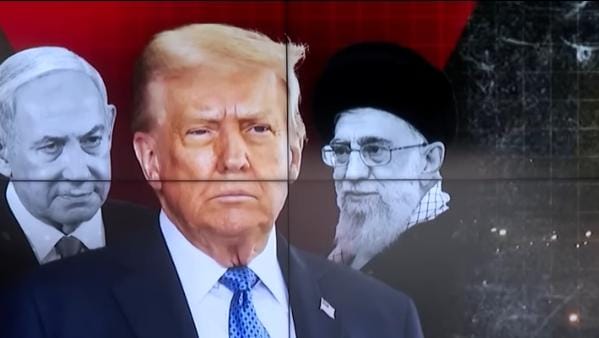On June 10, 2025, the United Nations General Assembly adopted a landmark resolution calling for an “immediate and permanent ceasefire” in Gaza, along with “full, rapid, safe and unhindered humanitarian access” and the “immediate release of all hostages.” Out of 193 member states, 149 voted in favor, 12 voted against, and 19—including India—abstained. India’s decision to withhold its vote has prompted questions about the country’s moral leadership and long-standing commitment to strategic autonomy.
India’s abstention—presented in official statements as a nuanced, balanced approach—cannot be viewed as a neutral act. In international diplomacy, abstaining on a resolution that a clear majority regards as a moral imperative is less an act of impartiality and more an evasion of responsibility. By stepping back at a moment when the global community overwhelmingly endorsed a ceasefire, India signalled a departure from its post-colonial legacy of principled non-alignment and moral clarity.
Since the days of Mahatma Gandhi and Jawaharlal Nehru, India has championed the rights of oppressed peoples, including the Palestinians. Gandhi denounced the creation of a Jewish state at the expense of Arab inhabitants, and Nehru made support for Palestinian self-determination a pillar of India’s foreign policy. New Delhi was among the earliest non-Arab backers of the Palestinian Liberation Organization as the legitimate representative of the Palestinian people.
Over the past decade, however, India’s foreign policy has undergone a noticeable shift. Under Prime Minister Narendra Modi, bilateral relations with Israel have deepened in sensitive areas such as defence, cybersecurity, and intelligence cooperation. Modi’s historic visit to Israel in 2017—without a corresponding stop in Ramallah—underscored India’s willingness to recalibrate longstanding regional loyalties in pursuit of strategic partnerships.
India’s abstention in the Gaza ceasefire vote follows similar decisions in 2021 and 2023. Though Indian officials frame these actions as evidence of a principled, non-aligned posture, critics contend that they reveal a transactional diplomacy dictated by geopolitical expediency. Rather than speak out against what many view as disproportionate military action and a humanitarian crisis in Gaza, India opted for the safety of silence.
New Delhi’s choice appears driven by concern over its relationships with the United States and Israel—both of which opposed the UN ceasefire resolution on the grounds of Israel’s right to self-defence. Yet abstention in this instance seems less an assertion of “strategic autonomy” and more a capitulation to the strategic imperatives of powerful allies. True autonomy would allow India to weigh interests without undue pressure from any single bloc; abstaining on a resolution calling for a ceasefire stretches that concept to the breaking point.
India’s decision also carries tangible risks in West Asia. The Gulf Cooperation Council countries—especially the UAE, Saudi Arabia, and Qatar—have grown increasingly vocal in their support for Palestinian rights. Public sentiment across the Arab world has reached a fever pitch, and governments face domestic pressure to act. India depends on Gulf nations for nearly 40 percent of its energy imports and hosts over eight million Indian expatriates in the region, whose remittances amount to billions of dollars annually. By appearing indifferent to Palestinian suffering, India risks alienating key energy suppliers, trading partners, and its own diaspora communities.
India’s abstention undermines its claim to moral leadership in the Global South. Prime Minister Modi frequently invokes India’s anti-colonial heritage and its role in the Non-Aligned Movement (NAM) as proof of New Delhi’s independent foreign policy. Yet remaining silent on Gaza makes that claim appear hollow, especially when much of the Global South has unequivocally stood with Palestinian civilians caught in a devastating conflict.
This moment calls for a re-evaluation of India’s foreign policy philosophy. Revisiting the spirit of non-alignment does not require severing ties with Western powers or Israel; rather, it demands restoring a commitment to moral diplomacy and the courage to speak truth to power. NAM’s founding principle was not neutrality for neutrality’s sake but solidarity among post-colonial nations against oppression and occupation. In an era when new forms of “counter-terrorism” and “security operations” mask colonial violence, India’s voice is urgently needed on the side of justice.
India’s abstention on the Gaza ceasefire vote is more than a diplomatic footnote—it is a mirror reflecting moral dissonance and strategic uncertainty at the heart of its foreign policy. As images of bombed hospitals and starving children flood screens worldwide, India’s silence resonates loudly. While foreign policy necessarily balances interests, certain moments transcend realpolitik. The UNGA vote on Gaza was one such moment. By abstaining, India did not simply sidestep a political controversy—it side lined its own legacy as a principled actor.
New Delhi must now ask whether its current trajectory serves India’s long-term interests or merely placates short-term strategic allies. At stake is India’s reputation as a moral authority in world affairs and its capacity to lead the Global South on issues of human rights and decolonization. India has a choice: reclaim the spirit of Bandung and non-alignment, or drift further into the orbit of great powers. History will judge those who stood for humanity when the world burned. It remains to be seen which side of history India will choose.
Hasnain Naqvi, a former member of the history faculty, St. Xavier’s College, Mumbai. He writes on diverse topics ranging from History, Culture, Politics and Contemporary issues.




